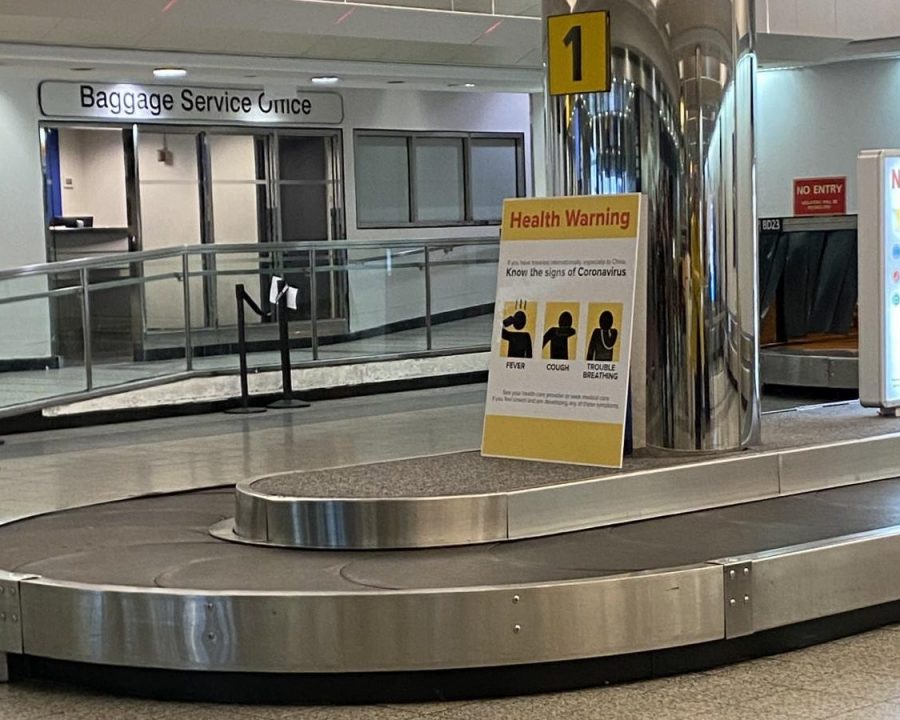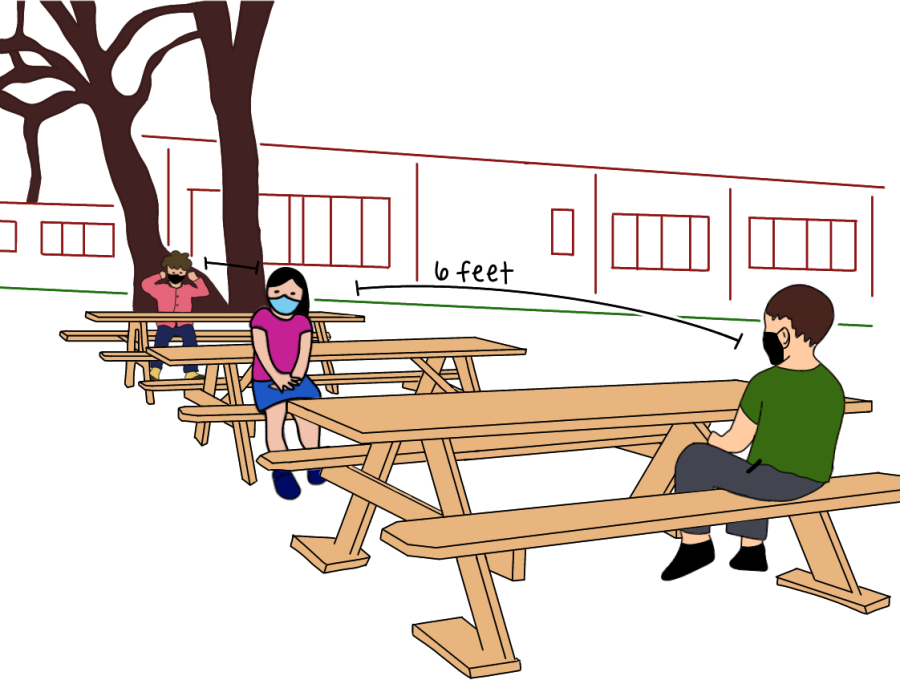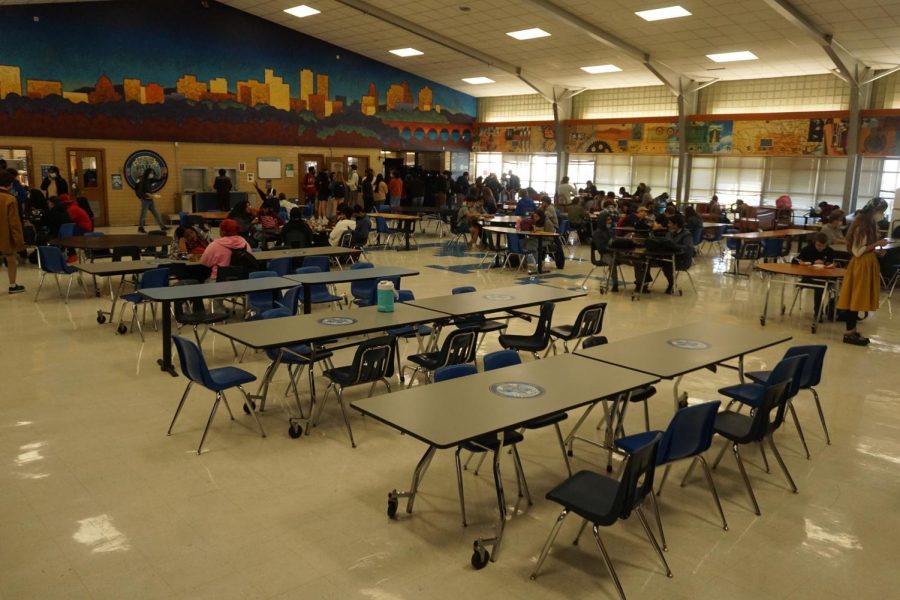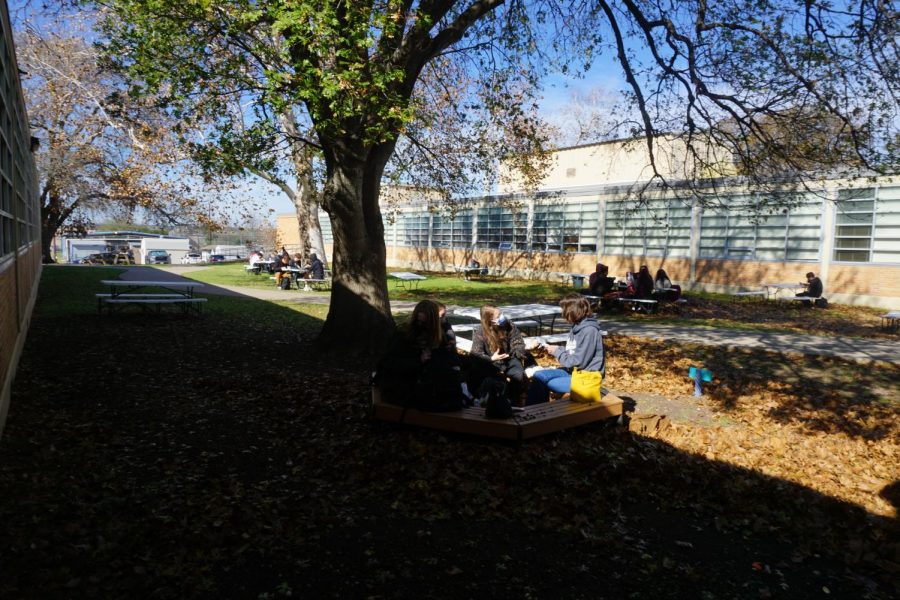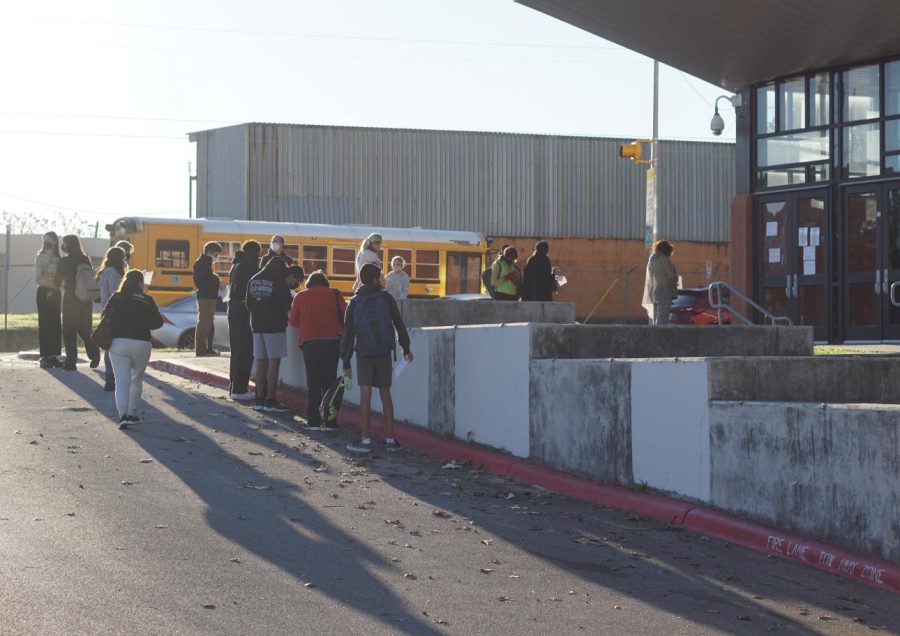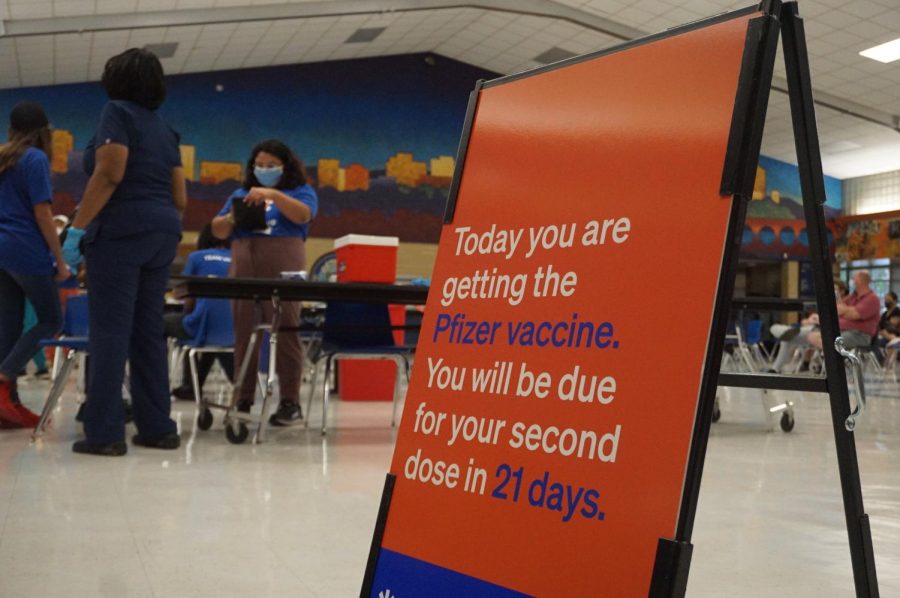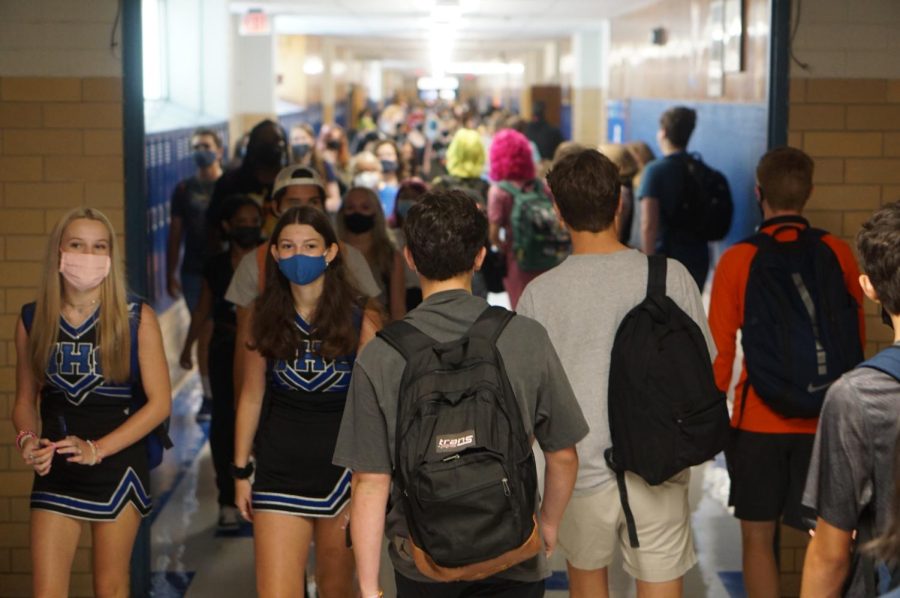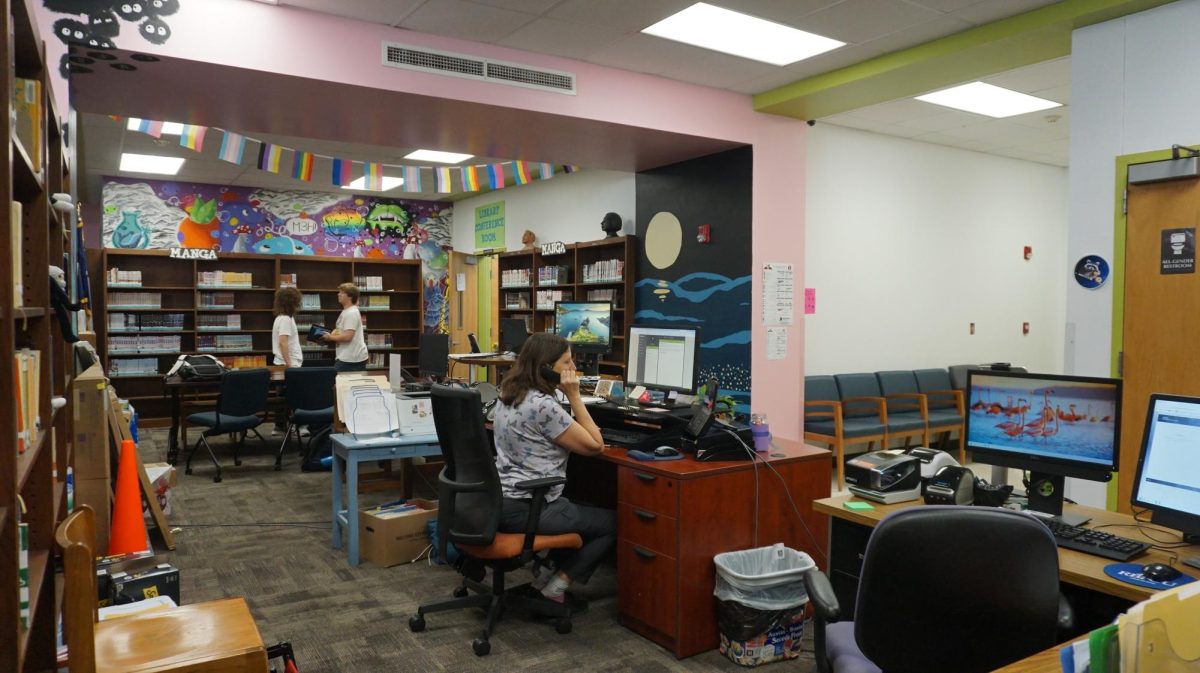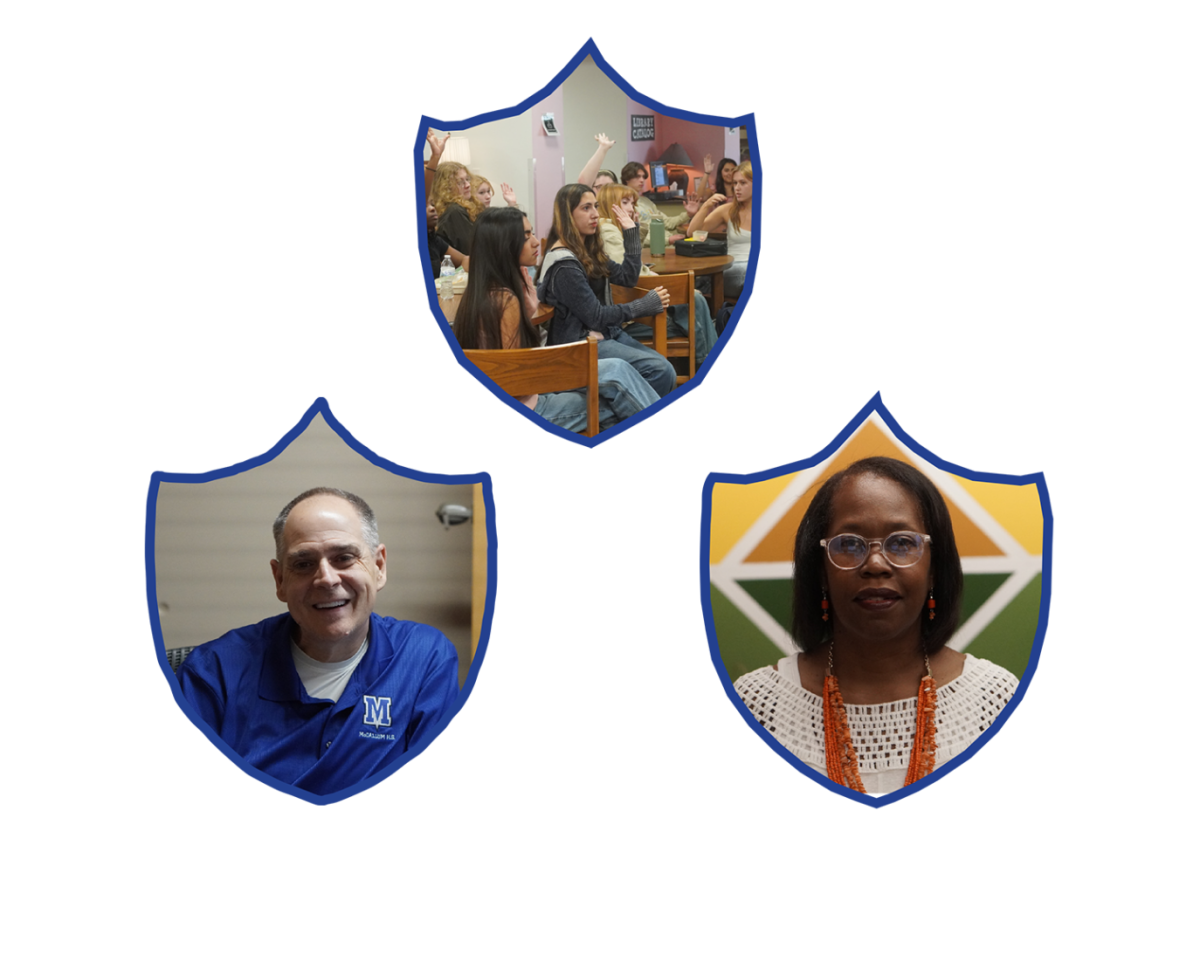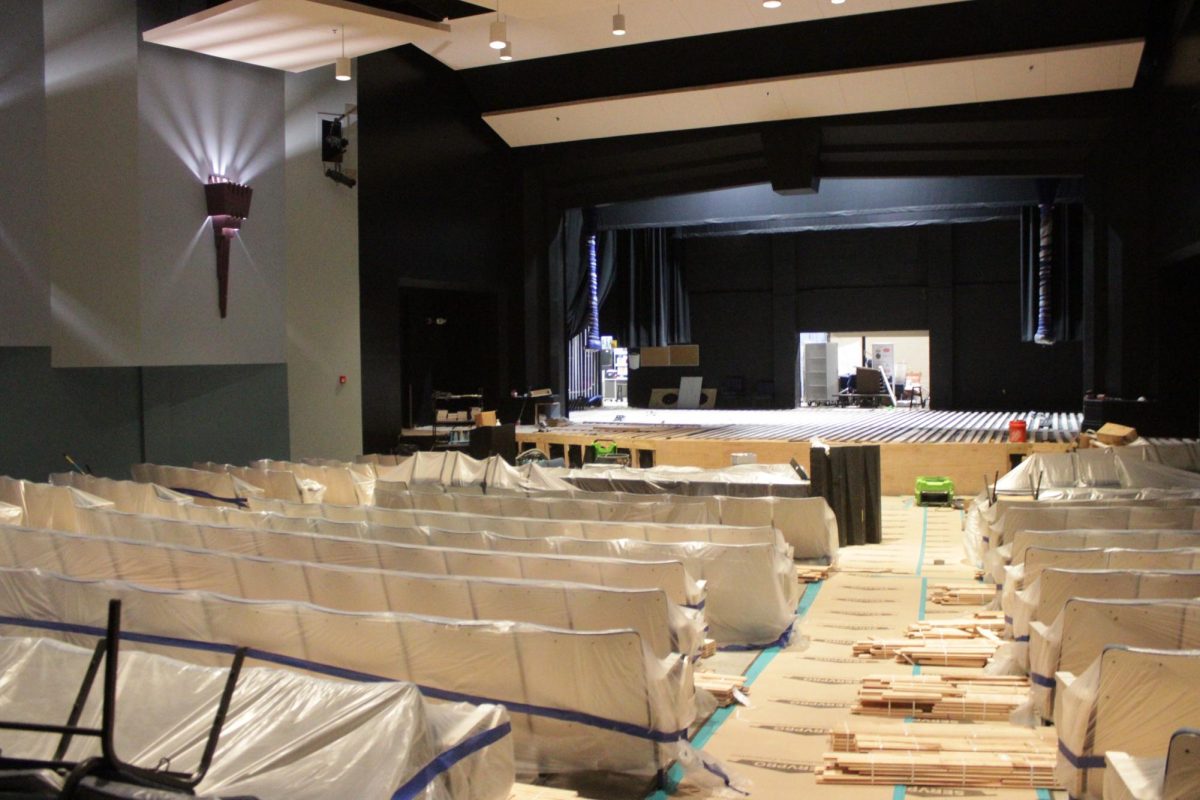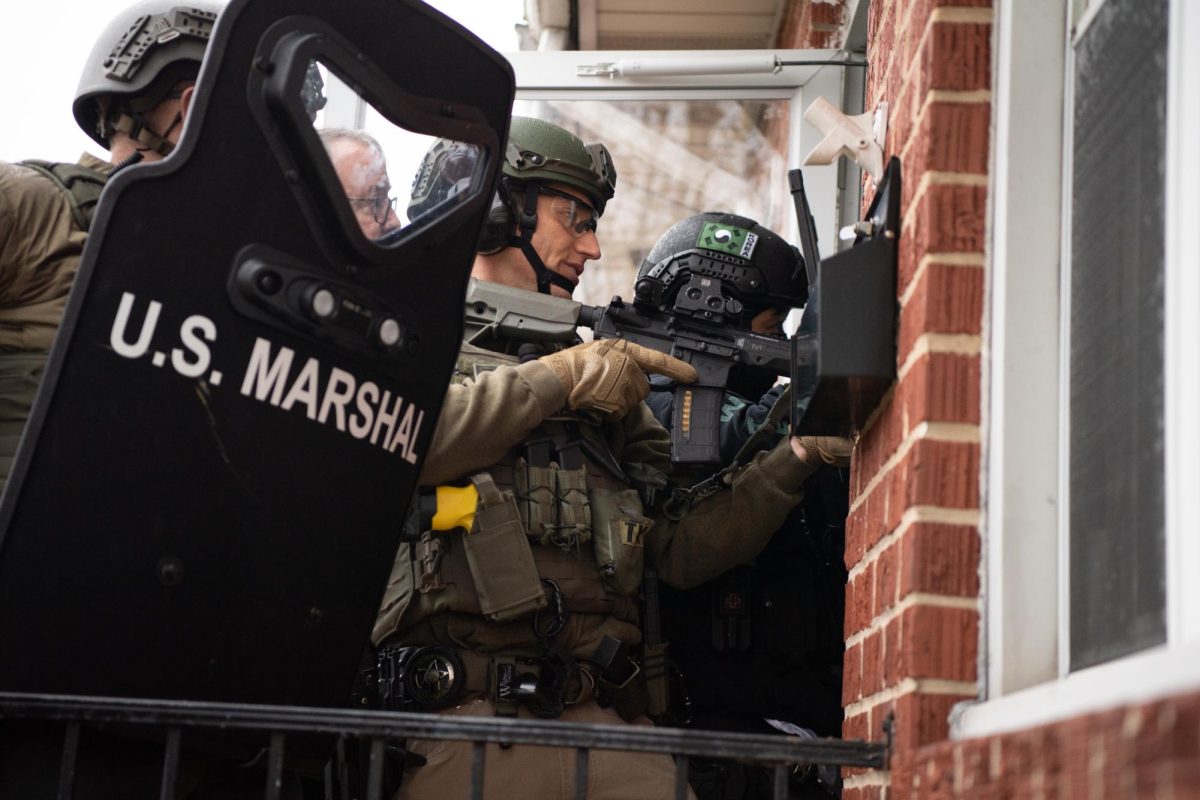Even though coronavirus diagnoses haven’t hit McCallum, the effects of the virus are still being felt by many students. Especially with the cancellation of South by Southwest and UT’s extension of spring break by an extra week, the effects of the coronavirus are being seen all over Austin. A district-mandated travel ban on school-sponsored travel has led to the cancellation of two spring break fine arts trip, a theatre trip to London and a guitar and piano program trip to New York. Meanwhile, school officials at Mac are preparing for a deep clean of the campus over spring break and anticipating the possibility of more cancellations and other changes to the school year in response to this developing health crisis.
According to the Centers for Disease Control, coronavirus, or COVID-19, is a “respiratory illness that can spread from person to person.” It spreads by close contact (about six feet) and can be lethal to young children, the elderly, and people with compromised immune systems. Common symptoms are fever, coughing, and shortness of breath, although in severe cases patients can develop pneumonia in both lungs and organ failure. To protect against the spread of the virus, campuses, workplaces, and social meeting places are closing worldwide. Austin is not excluded from this; on Saturday, AISD suspended all district-sponsored international trips through the end of March and on Wednesday the district said it was cancelling all district-sponsored travel to select states experiencing coronavirus outbreaks.
“There is no time frame [for lifting the domestic travel ban] at this moment as we are continuing to monitor the spread of COVID-19 and following guidance from the CDC,” the district communicated to MacJournalism through a Twitter direct message.
Unluckily for students, many McCallum school-sponsored trips have been canceled as a result of the district’s announced travel restrictions.
“I waited a full year for the London trip and of course it got cancelled,” theater major and hopeful traveller Amelie Chaouat said.
Chaouat was to travel to London on a MacTheatre trip over spring break. Like Chaouat, fellow trip hopeful Abby Leman was also disappointed about the already long-awaited trip being pushed back.
“I think I was just really excited to go, because I’ve never been out of the country,” Leman said, “and I was really looking forward to a cool learning experience with a bunch of my friends. So it was really disappointing when it got cancelled because it’s kind of what I’ve been focusing on all semester.”
The London trip was to happen during spring break. Students had already set a down payment of $4,000, and because of the program that they set up their trip with, they don’t get a refund and instead are consoled with the promise of making the trip next year. The trip is now scheduled for spring break 2021. Current seniors were given their own plane ticket so they could travel to London on their own time.
Guitar was also planning a spring break trip to New York, one of the states on the district’s domestic travel ban. The cancellation and its direct influence on students’ lives is causing many Mac students to realize that the societal impact of the coronavirus, if not the virus itself, has arrived at McCallum. The guitar and piano program’s trip to New York is in a similar situation to theater, except there is not a foreseeable make-up trip and no definitive refund.
“[I’m] pretty bummed. New York’s a cool place,” guitar program member Josh Betton said. “It sucks. I didn’t expect it either. It’s crazy, I saw [the coronavirus] as a far off thing, and I never saw it directly affecting me, but now it is. It feels a lot more real now. Hopefully, we get a refund. [We’ve paid] like $1,000 already. And we did it through a booking agency, so I don’t know [if we’ll get one]. That’s a lot of money.”
Even though students were upset by rain checks, they understood the decisions to postpone and cancel trips.
“I think [the travel ban] is reasonable,” Chaouat said. “Even though we probably wouldn’t get [the virus], there’s a chance one of us could bring it back to Austin.”
Leman agreed.
“I think that AISD made the smart decision because it wouldn’t be wise to put ourselves in a position where we could contract/spread the disease. Also, it would be a very bad situation if we got stuck in Europe under quarantine, without our parents, and with our teachers liable for anything that might happen.”
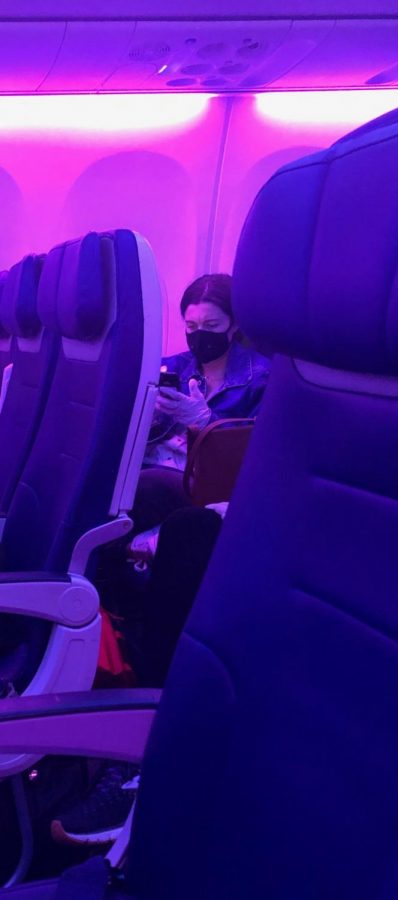
An unidentified airline passenger wears a mask and rubber gloves to limit exposure to possible contaminants. Photo by Mia Terminella.
Betton also said he understood the district’s decision.
“I get it. If anyone brought it back to McCallum and it got shut down, that would cause a whole lot more problems. I don’t think it’s in their hands so much.”
With recent federal travel bans being placed on international travel, other Mac students’ spring break plans are also being complicated. Two students, Anna Nagle and Cate Weisbrodt, were planning on going to Asia, but because of COVID-19 have had to cancel their plans.
Anna Nagle lives with her Korean stepmom, whose mother she says is “pretty much my only grandma.” It’s difficult for their family to contact her grandmother, so travelling to South Korea was going to be a good opportunity to see how she is doing.
“My stepmom is not really happy anymore because the ban on travel makes it hard for us to check up on her [mother],” Nagle said. “She is getting older, and it’s really scary to think that she’s in a place where the coronavirus is suddenly pretty common. I wish I could go see her, but now we can’t. I wish we could just go and make sure she’s OK.”
Nagle said she understands the ban but also that she wishes she didn’t have to.
“This is absolutely a reasonable travel ban; precautions definitely must be taken, but I miss my grandma, and I’m scared I will never be able to see her again. I just want to see her and know she’ll be alright, that my whole family will be alright.”
Weisbrodt has no biological family in Japan, but she does have a connection with the family that hosted her last summer when she visited Japan on an exchange program. She was planning to travel to Japan to visit them and to make a college visit there.
“The original plan was that [my mother and] I were going to go to Tokyo,” Weisbrodt said. “I was thinking about visiting a college, just spending time over there. I was really looking forward to seeing my host family. I wanted to meet up with them, say, ‘Hi,’ you know? We text all the time and Hokkaido [the main island in Japan] right now is pretty messed up,” Weisbrodt said.
She learned more information on what was going on in Japan from her host mother.
“I know that most of the [infected] people are on a cruise ship right now,” Weisbrodt. “They’ve got one docked outside of Tokyo. I don’t know where it went, but pretty much everyone affected is chilling on that ship, as well as people that aren’t. There are people publishing blogs and stuff from inside it. Japan’s trying really hard to keep it contained. My host family is really worried about it. Like the kids are out of school and she’s out of work, so they’re just at home. They’re worried, their daughters are really young, so they don’t really understand what’s happening. Everyone’s just inside, looking out their windows, that’s kind of just how it’s going over there right now.”
Though Weisbrodt is understandably disappointed about not being able to travel, she also understands and supports the travel bans like the other McCallum students do. She said that until leaders develop a secure way to keep people from getting the virus, policy makers need to develop plans to stop as many infections as they can.
“Of course it’s going to go dormant in the summer, but that doesn’t mean it’s going to stay that way,” Weisbrodt said. “If I’m being honest I don’t think it’s going to be safe for anyone to travel until we have a vaccine. I mean people will still get it… the virus won’t go away.”
Restricting travel is only one policy that has been put in place at McCallum, within AISD and throughout the country.
In addition to preventative strategies, there are also combative strategies in place as well.
While students and teachers are enjoying their breaks, or mourning the loss of canceled trips, members of the McCallum staff will be hard at work sanitizing the school over spring break. In a measure to combat the spread of a “number of communicable diseases,” AISD has instituted a districtwide spring cleaning effort that calls for heavily used surfaces such as desks, tables, countertops, and doorknobs to be misted with Virustat DC plus and 24 Q T plus disinfectant sprays.
Although the cleaning isn’t as much as a direct response to the coronavirus as it is to flu season as a whole, assistant principal Gabe Reyes says that the district is following the lead of the Centers for Disease Control to help prevent the spread of COVID-19 and will continue efforts according to their recommendations.
“It just depends on what the CDC and others advise us to do,” Reyes said. “I’m sure the district will follow those recommendations. It might be that this becomes kind of a regular thing, to go through the week, and then maybe have people come in on Saturday and wipe it all down just to be clear, just to be safe. Better to be overly cautious than to not take any kind of precautions.”
McCallum is also considering protocols for if the situation worsens. There are no guarantees yet, but in one scenario that has played out in colleges throughout the nation, McCallum and AISD schools could transfer to online school. It’s a change that principal Brandi Hosack predicts the school and system could handle, though it would have downsides.
“I think high schools are well-suited for [a transition to online school] because we already have laptops, and we already have Blend,” Hosack said. “We’re set up for it, but it wouldn’t have as near the impact that coming to school with real instruction has.”
Another thing Hosack said the district is considering is protecting students by restricting large gatherings, such as graduation and prom.
“We’re certainly trying to limit the exposure of mass gatherings, but we don’t know how long we’ll have to do that for. Every single day is a new game with a new set of rules. It’s a new wildfire to deal with, but the No. 1 goal is to keep everyone healthy and safe.”
She leaves McCallum with one piece of strongly worded advice:
“WASH YOUR HANDS! WITH SOAP!”
This is a developing story that we will continue to update as warranted.
— reporting by Anna McClellan, Samantha Powers, Bella Russo, Julia Kay Smith and Mia Terminella.
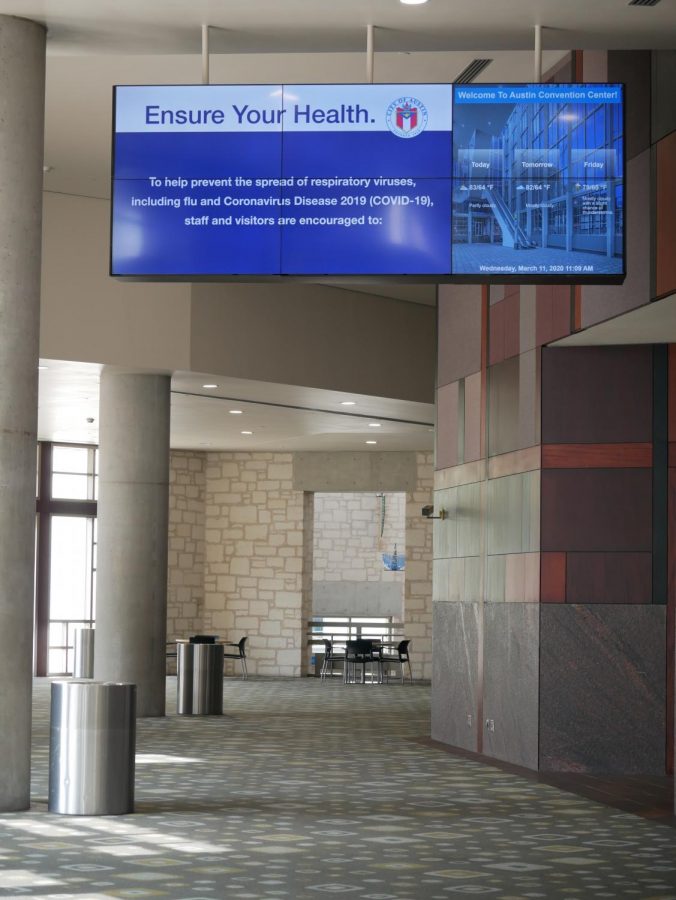
The Austin Convention Center, the hub of SXSW, was void of humanity except for workers there who would not comment on the SXSW cancellation and the ominous message about the virus that caused the cancellation of the festival that would have had this venue teemed with humanity in just two days.



